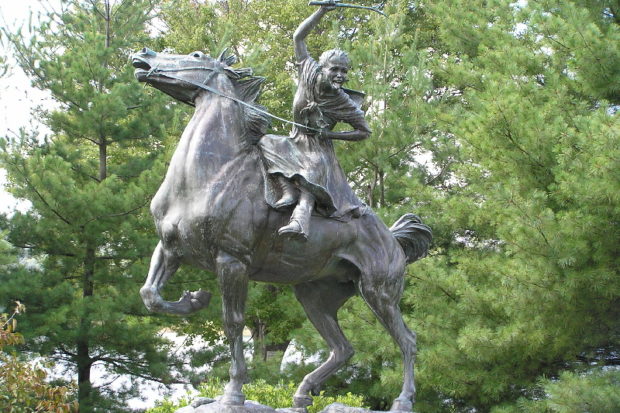
By Ruth Gadebusch
As we close out Black History Month and move to Women’s History Month, many continue to wonder why those two groups need separate times of emphasis. True, it should not be necessary, but one need only learn of the previously untold stories to realize the necessity of inclusion. Better late than never!
The historical void in the telling of contributions of Black people has been somewhat rectified in the recent opening of the African American Museum in Washington, D.C. Women still wait, but there is a dedicated group attempting to obtain the last site on the great Washington Mall for the National Women’s History Museum.
Difficult as it was to make the African American Museum a reality, women have struggled longer with the many roadblocks. At least Congress funded the study for viability of the African American Museum, whereas it has required the women to fund the study for the need of such an institution and who gets that last plot of land.
Placement alone implies importance. All such institutions require private as well as public funding, but this proposal has had more than its fair share of impediments.
Perhaps the most simple example of the need for a women’s museum is that of the midnight ride of Paul Revere known by every American schoolchild. But how many of them, or their teachers, know about Sybil Ludington? At age 16, she rode further and warned more people of the British coming than did Paul Revere.
Of particular importance in this valley is the cotton gin with its origin credited to tobacco farmer Eli Whitney. As a woman unable to be issued a patent, cotton grower Catherine Littlefield Green solicited the help of her guest to develop her concept—all patented in his name!
Later, when women could get patents, it was cotton mill worker Margaret Knight who developed—and patented—the flat square bottom bags used for years in grocery stores and elsewhere. A women’s museum will feature stories such as these and others including that of Josephine Cochrane, inventor of the dishwasher in 1886, and Bette Nesmith Graham’s “Liquid Paper,” ever so important in covering up typing mistakes!
On a different level, approaching the 100th anniversary of the women’s vote in this nation, we are becoming more conscious of just what women can accomplish and of society’s need for those talents. More females than ever before have not only voted, but also run for and been elected to public office. However, it has not been a smooth road.
Society’s written and unwritten rules have prevailed both for women and race. The 13th Amendment to our Constitution freed the slaves but women’s rejoicing for the 15th Amendment was premature when ruled it did not include women. It simply assured the vote for all men regardless of race.
Women (ethnicity wasn’t in the picture at all) were mere afterthoughts? Attachments? Whatever? Thus, new effort was inspired for the fight seriously begun with that infamous meeting in Seneca Falls, N.Y., on that hot July 1849 day. Today, we wait for guaranteed equality beyond the vote: the Equal Rights Amendment.
The quest for the vote was not as militant as in Europe, but many women and men devoted their lives to equality and justice as now for reproductive freedom, LGBT rights, refuge for the downtrodden, free press, peace and other things we believe are parts of a great democracy.
All our stories are interrelated because we share the nation, the planet. As a group, one might affect an individual more directly than another. In looking back, we wonder why each could not relate to the trials and tribulations of the other, why not all were in stories of our history. Likewise, our descendants are going to question why we are still so divided today. Rather than judge our predecessors by standards of today, may we learn and progress.
Museums are valuable for telling our stories because we learn from history, but the real value comes from integrating them just as it needs to be in actual living. This nation started with such high hopes that in many respects has achieved what none other has done; however, at this point we could truly use more togetherness. That requires more respect, tolerance, appreciation, consideration and inclusion before we can forego separate history months.
We seem to be making such a dream unnecessarily difficult. Nothing has been said that we have to agree. We do have to treat others as we want to be treated.
Only a Pollyanna would expect perfection. It does not happen in humans, but each of us has a responsibility to make a difference. To do that, we need to know about the many who have contributed in various ways in every aspect of life.
Some of the smallest little changes, or a seemingly insignificant thought, can make a profound difference. Some make an immediate difference, whereas others are only felt in the far oft future. Even this latter had to start at some point. Credit to those who produced them is not only fair but inspiring, convincing to others that they too can contribute.
May we remember our history, better interwoven, but told separately if necessary. Most of all, may we grow and learn from it letting our presence make a difference.
*****
Ruth Gadebusch, a former naval officer, was elected four times as a Fresno Unified School District trustee, was appointed by Governor George Deukmejian to the California Commission on Teacher Credentialing, served as president of the Association of California Urban School Districts as well as various local organizations; and is an emeritus member of the Center for Civic Education.
